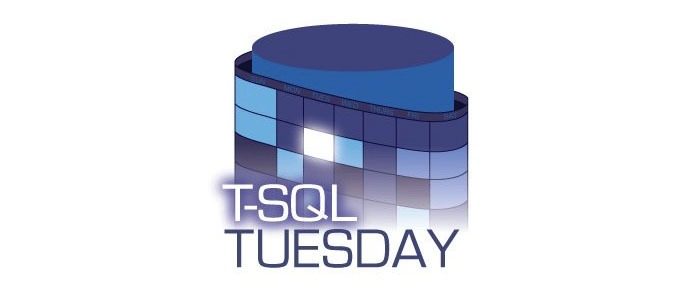This month, Kendra Little his hosting T-SQL Tuesday. The monthly blog carnival among SQL Server, Microsoft Data Platform, Data People. It’s been around for quite some time. I hosted the 4th T-SQL Tuesday back in 2010 or 2009 about Storage and IO. So cool to see it going this long. And a topic that I had a few thoughts on so it forced me to take out the old keyboard and type up a few hundred words. Anyway, I’m going to talk about a story I’ve mentioned here before in various forms over the years, but it is worth looking at from a different perspective. The lesson is about a phrase. And why you should never be afraid to utter it. The topic this month is around Interviews.
“I Don’t Know”
That’s it. That’s the magic phrase. Well it isn’t magic, And it better not be the only phrase you utter in a job interview as a candidate. But at times? It’s a good thing to utter. Sure, if the question is “What does SQL stand for?” or “Describe what a database is?” you may have bitten off more than you can chew and the answer will hurt your chances for a DBA job.
But let me tell you a story about Mike. This was, oh jeesh I don’t know, maybe my 5th or 6th year in technology? Maybe a bit less, maybe a bit more. I’ve been playing this game for 19 years this December, I think, so I lose track a little. It was definitely back when we only had one child, and maybe not even her yet, so it was a few kids ago. Before I was a blogger. Before I would have even dreamed of applying to speak at the PASS Summit, maybe before I even knew what it was.
Anyway, I interviewed for someone I ended up working with for maybe a year or two. He ended up being one of the best managers I ever worked for. I hadn’t yet really experienced SQL Server clustering yet at that point in my career in a serious way. I had been a DBA and Data Developer and more basic environments. Some tuning and all, but pretty light on the DBA stressors. This was a role at a company using SQL Server clustering, really large databases, 24/7 up time, serious performance needs, growing. It was a bit of a scary move. (Which is another lesson altogether – don’t be afraid to jump!! I have two posts where I talk about this. One draws an analogy from Farm Fences. The other from jumping into a pool). But I did it, and went to the interview.
During the initial phone screen the manager had asked me a series of questions. Some basic ones “how does this work?” “What are statistics in SQL Server?” “What is the difference between recovery models?”. One of them though (and I forget the question) was a question about networking and routers. It was something I had a guess about. But I just wasn’t sure. While I can’t remember the question, I remember how I answered and it was “I don’t know for sure honestly – if I had to guess it would be this way”.
I didn’t think anything of it. I was a bit nervous as I had to break out the “I don’t know, but…” a couple more times. And in NH then (and now) data jobs have a lot of competition. But sort of forgot about that until I got the job and started my first week of work. Ended up having lunch with the manager and we were talking about the interviews and candidates. He basically told me that I was a bit weaker in some areas than some of the folks he let through the phone screen and not necessarily the best skill wise but he liked me for a few reasons. One of the biggest was he liked that I said, “I don’t know”. He said not all gave that answer. He said he purposefully asked questions which would eventually likely garner an “I don’t know” just to see how the candidates answered. He didn’t want to work with a no-it-all who had an answer, even when it wasn’t accurate.
There were a couple other tricks in that interview. He asked me a controversial question and argued the other side just to see how I’d respond. I didn’t realize that at the time but we talked about it after. I learned a lot from George not just about interviewing (being interviewed and giving interviews) but I also learned a lot about human nature, about teamwork and not being such a hot head. The latter lessons came more from his great management and mentoring. But the former definitely came from his interview example.
To this day when phone screening or interviewing candidates I’ll try and ask a question to elicit an “I don’t know” and I’ll try to “start a fight” to see how it is handled. In fact I featured this one in my blog post “Six reasons I won’t hire you“.
So what can you draw from my interview at that company?
- Don’t be afraid to say I don’t know. It’s far better than a wrong answer made to soudn intelligent. You may still lose out on the job, but you’ve also left your integrity and future chances there at the doorstep. If you are going through a recruiter? A negative interveiw can hurt your chances elsewhere also. But you may get the job because of your honesty.
- Don’t be afraid to interview “up” – in fact it’s when we are most uncomfortable that we grow the most. That job was perhaps the turning point in my career. Sort of moved me from a hot-headed know it all at the company I had previously grown at and was a pretty good data person at to a person who realized the value of a team and that I didn’t know it all, but actually knew a lot less than I thought I did.
- Honesty and humility go a long way. And can make a difference when skills are compared evenly. I’d higher a humble person who is great to get along with and has the understanding of team dynamics over a person with 5-10% more skills or knowledge who will make my days a living nightmare – every time. (Of course you can’t fake this one. Not long enough. So if you aren’t practicing it, start practicing it, then you don’t have to 😉 )



Great advice! It is a huge negative when people try to come up with an answer when they clearly don’t know the answer.
Indeed. I hate it when a service provider does that. I don’t really ever need an “expert in all things” I just want someone who can help out, provide some knowledge to help and is still humble enough to be willing to learn.
Great post, Mike. I think you are totally right about the magic phrase. But I think my favorite part is your note about practicing humility until you don’t have to practice anymore. I still gotta practice, but at least I enjoy it now 🙂
Thanks! And great topic to host also 🙂
And I’m still working on enjoying the practice more 😉
Saying IDK – in our field it is almost a sin to admin you don’t know something. I wish more people would follow this advice. I also like to follow it up with “I don’t know but I know how I can find out…”.
Ha! Indeed. And the “I know how I can find out” is quite an important follow-up. It’s that balance between apathy “Nope.. don’t care” and arrogance “Of course, I know it all [insert made up answer here]”